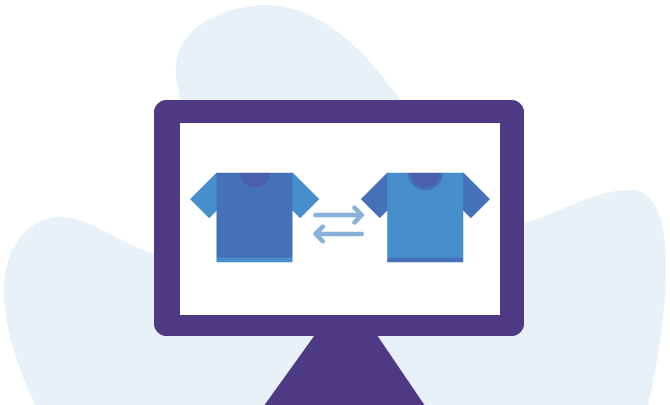The CEO of a major B2C retailer approached us, hoping to reduce product returns and negative customer feedback. The number of visits and purchases from brand-loyal customers and first-timers was falling and greater losses in revenue and the erosion of its customer base seemed inevitable. It was clear that the client needed to implement a set of guidelines for effective analytics, and a fresh approach to help them deliver world-class customer-product personalization.
Case Study: A Fortune 200 Retailer
How Bennett Data Science used A.I. to help lower product returns by 10% and raise revenue by 4%
The Client
The Challenge
Our client’s internal data science team was working hard to improve the personalization of product offers. They had the know-how and access to the data but faced challenges on many fronts:
Lack of data organization – The company’s data science team required weeks to collect the right data for new projects. This kept the team from producing timely insights and found them constantly in reactive (rather than proactive) mode.
Lack of engineering support – Data science within the company was siloed; data scientists were not involved with regular stakeholder meetings. This lack of company-wide exposure made it difficult to get engineering support for their initiatives.
Weak alignment with product team – Another consequence of having a siloed data science team was their lack of proactive communication with product teams that needed data science support. The product team was constantly involved in work- arounds to solve problems that would have been much better served by data science. As a result, product teams couldn’t get the results they needed on time.
Change was difficult – Due to inefficient and inflexible operational processes, even small changes could set the team back by several months.

No good solution for lack of inventory – A big challenge was how to effectively manage a lack of inventory for any given product in real-time. The company needed an A.I. based solution to provide related or visually similar options to customers.
Lack of personalization – The effectiveness of the existing customer-product personalization was low; All customers were recommended the same products without consideration for specific customer attributes, preferences or seasonality.
The Solution
Bennett Data Science was brought in to make the data science team proactive and to tackle the most important challenge to their product team: Make customers want to engage more often with their brand and for longer periods. We took over leadership of the data science team to set up agile, scalable processes and orchestrate a complete turnaround.
1. Organize the Data to Work for (not Against) Product Initiatives
We designed, then helped implement a future-proof efficient data storage architecture conducive to the fast-iteration style of work required by the data science team.
We specified a straightforward system of data storage that we use with most of our clients; it’s specifically designed to increase team productivity by simplifying data science day-to-day operations while being easy to implement and update.
This change alone saved the team months of duplicative work of sifting through and cleaning endless data.

We trained the technology team on simplified techniques to help bring data science insights to the product team and companywide. We worked closely with them to implement company-wide insights correctly, ensuring that they would serve our client’s customers in a personalized manner.
These changes freed the data science team: deployment of new models went down from more than six months to just a few hours. As a direct result, the data science team was able to recover nearly 75% of the efforts previously lost to repeated data organization.

2. When Inventory is Low, Enable Automatic Product Swaps
We developed and implemented an A.I. driven tool that searched a massive catalog and returned similar products quickly and reliably. This helped customers find and purchase relevant products while suggesting better, more personalized substitutes in case a product wasn’t available.
This innovation alone provided a 4% lift, resulting in millions of dollars in increased revenue.
3. Implement Highly Personalized Product Recommendations
By designing and implementing bespoke data-driven personalization, customer engagement with favorable products increased drastically, leading to 10% lower return rates and up to 10% fewer complaints.
This was direct evidence of the power of 1:1 personalization to increase customer satisfaction.

Conclusion
Many companies hire data science teams in hopes that the application of intelligent algorithms to business challenges will pay off. They can, and will, pay off under the right circumstances and with the right guidance.
For our client, we used data, analytic methods, and organizational oversight to increase the number of visits and purchases from brand-loyal customers while reducing negative purchase feedback (a sign that our personalization worked). As a result, we saw revenue increase and returns drop.
A.I. can have big impacts on customer engagement and ultimately revenue for many companies. To determine if a similar data-driven approach might be right for your company, we’re happy to offer you a free A.I. Discovery Session designed to help you understand exactly how to use A.I. to your company’s advantage.